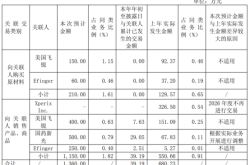$200 billion Thalys, repeatedly caught up in accident controversies
![]() 11/10 2024
11/10 2024
![]() 633
633

Produced by Radar Finance | Written by Xiao Sa | Edited by Shen Hai
A traffic accident has put Thalys in the spotlight of public opinion.
On November 7, in response to an accident involving a Wenjie M7 vehicle identified as having "brake failure" and "data tampering," Thalys issued a statement through its WeChat official account named "Thalys User Service," stating that the case has entered judicial proceedings, the accident appraisal institution must be jointly selected by both parties or designated by the court, and the facts should be determined based on the court's findings.
This is not the first time Thalys has been involved in controversies regarding intelligent driving safety this year, as the company has issued multiple statements regarding related accidents.
On October 9, Luo, the Vice President of the Hubei Jiangxi Chamber of Commerce, and his family were driving a Wenjie M9 when they were hit by a large truck, resulting in one death and two injuries. Earlier, a Wenjie New M5 failed to brake urgently while in intelligent driving mode on the highway, killing 11 sheep.
The succession of accidents has attracted public attention and raised concerns among consumers about Wenjie's core intelligent driving technology capabilities.
In terms of performance, relying on the success of Wenjie, Thalys, which had struggled for several years, has finally reaped the rewards. Financial statements show that the company's revenue for the first three quarters was 106.627 billion yuan, a year-on-year increase of 539.2%; net profit attributable to shareholders of the parent company for the same period was 4.038 billion yuan, achieving profitability for three consecutive quarters this year.
In the secondary market, Thalys' share price has increased by over 75% within the year, and the company's total market value currently stands at around 200 billion yuan. Zhang Xinghai, Chairman (Founder) of Thalys Group, has a personal fortune of nearly 30 billion yuan.
Frequent Accidents Involving Wenjie
On November 7, Thalys issued a "Statement on the Appraisal of the Guangzhou Wenjie M7 Accident" through its WeChat official account named "Thalys User Service."
The statement said that after analyzing the vehicle data, the steering and braking functions of the vehicle were normal before the accident; the vehicle was in manual driving mode during the accident, with the throttle opening at 100% and no active braking record. The car owner did not accept the above conclusions and commissioned Shenzhen Nanyue Property Appraisal and Certification Co., Ltd. to conduct an appraisal, sparking discussions on the internet about the relevant content.
Thalys stated that the case has entered judicial proceedings, the accident appraisal institution must be jointly selected by both parties or designated by the court, and the facts should be determined based on the court's findings.
It is reported that on July 6, 2024, a Wenjie M7 was involved in a traffic accident in Guangzhou. After the accident, the car owner posted online questioning the sudden acceleration and brake failure of the vehicle. At that time, the AITO Wenjie Automobile customer service responded in the comments section of its official Weibo account, stating that "the vehicle's accelerator pedal was 100% open, which does not fall under the AEB trigger scenario, and no active braking record was found."
Subsequently, the car owner released a vehicle appraisal report, which showed that the Wenjie M7's brake pedal failed five seconds before the accident, and the data and conclusions in the accident report issued by Thalys had been tampered with.
As the case has entered judicial proceedings, the truth of this incident remains to be determined by the court. In fact, Wenjie has seen frequent accidents this year.
As early as April 26, a Wenjie M7 Plus was involved in a traffic accident in Yuncheng, Shanxi, collided with a road maintenance vehicle, caught fire, and killed three people inside.
Afterward, the family of the deceased questioned the lack of automatic emergency braking by the AEB (Automatic Emergency Braking System) and the battery fire.
On April 28, the official WeChat account of "AITO Automobile" stated in a declaration regarding the Wenjie M7 Plus traffic accident in Yuncheng, Shanxi, that according to the national platform data access management regulations, the vehicle's speed at the time of the accident was 115 km/h, the airbags deployed normally, and the power battery pack performed normally.
Subsequently, the company released the "Explanation of Technical Issues Related to the Wenjie M7 Yuncheng, Shanxi Traffic Accident," stating that the working range of the Wenjie M7 Plus's Automatic Emergency Braking (AEB) is between 4 and 85 km/h. The accident vehicle was traveling at 115 km/h when the collision occurred, exceeding the working range of the AEB.
Furthermore, when the accident vehicle collided with the road maintenance vehicle at a high speed of 115 km/h, the wiring harness was instantly cut off, and the front engine compartment was ignited by high-temperature components or short-circuit sparks from the wiring harness. The fire first started on the left side of the front engine compartment and then spread to the entire vehicle, but the power battery pack did not catch fire spontaneously.
On August 27, a Wenjie M5 charging at a parking lot on Fenglin Avenue in Nankang District, Ganzhou City, Jiangxi Province, suddenly caught fire unexpectedly.
On the same day, Thalys Automobile issued a statement on Weibo. The statement pointed out that the company was aware of the incident and was actively cooperating with the car owner and relevant departments to investigate and handle subsequent matters. After confirming the scene, no injuries were reported, and the battery pack did not catch fire or burn.
On October 7, a Wenjie New M5 hit 11 sheep that strayed into the overtaking lane while driving on the Binhe Expressway in Yunnan Province and then collided with the guardrail.
According to The Paper, before the incident, Mr. Lv, the car owner, had the intelligent driving system enabled. When the vehicle reached a sharp turn, it did not significantly slow down but directly hit a group of sheep on the overtaking lane and then collided with the roadside guardrail. The car owner quickly pressed the brake and turned the steering wheel to stop the vehicle, but the accident resulted in the death of 11 sheep.
On October 9, Luo, the Vice President of the Hubei Jiangxi Chamber of Commerce, and his family were driving a Wenjie M9 when they were hit by a large truck, resulting in one death and two injuries.
Screenshots of a WeChat group chat among members of the Hubei Jiangxi Chamber of Commerce circulated online showed that Chairman Luo was rushed to the hospital for emergency treatment. After regaining consciousness, he specifically messaged the secretariat on WeChat, reminding everyone who had purchased a Wenjie M9 to pay attention to driving safety and be cautious when using the autonomous driving function.
On October 14, Thalys issued a statement regarding the accident, stating that after analyzing the data, the vehicle had exited intelligent driving mode before the accident, and the braking, steering, and acceleration functions were normal. The company was actively cooperating with the local traffic police department to investigate the accident and providing all possible support to the car owner and their family.
In addition, on October 31, a video of a "Wenjie M9 suspected of losing control and colliding with the vehicle in front, 'bouncing' into traffic" went viral, with the incident occurring in Kunming, Yunnan.
In response, Thalys Automobile issued a statement on November 2, stating that after analyzing the vehicle's status, the vehicle was in manual driving mode when passing through the intersection, with the throttle opening at 100%. After the AEB was triggered, the vehicle's speed decreased from 69 kph to 30 kph. The throttle remained at 100%, and the vehicle eventually stopped after colliding near the intersection light pole.
Thalys stated that the company is fully cooperating with the local traffic management department and users to handle related matters, and specific details should refer to official announcements.
With the popularity of the Wenjie series, Thalys has frequently been involved in controversies regarding intelligent driving safety this year. Although the company's responses indicate that the accidents did not occur during intelligent driving mode, some market observers believe that "with so many traffic accidents related to intelligent driving, it's not necessarily all the users' fault."
Turning Losses into Profits
Relying on Huawei, Thalys has made rapid progress this year.
Thalys' production and sales bulletin for October 2024 shows that the company's new energy vehicle sales reached 36,000 units in October, a year-on-year increase of 104.61%. From January to October 2024, the company's cumulative sales of new energy vehicles reached 352,700 units, a year-on-year increase of 310.99%.
In terms of models, 16,004 Wenjie M9 vehicles were delivered in October, with cumulative orders exceeding 160,000 units in the 10 months since its launch. The Wenjie M7 series delivered 15,836 units in October, with over 20,000 firm orders for the month.
Cooperation with Huawei has been the main reason for Thalys' sales success. Looking back, Thalys began its cooperation with Huawei in 2019, adopting the deepest level of the Smart Selection Car model. The first model jointly developed by both parties, the Wenjie M5, was officially launched at Huawei's Winter Flagship New Product Launch Event at the end of 2021.
Another model, the Wenjie M7, began deliveries in August 2022 but struggled to sell after April 2023, with monthly sales falling below 1,000 units.
To address this, the company invested 500 million yuan to redesign the model and launched the New M7 in September 2023, equipped with HUAWEI's Advanced Intelligent Driving System. With higher configurations and lower prices, sales finally "revived." In September this year, one year after its launch, Wenjie New M7 announced that cumulative deliveries had exceeded the 200,000-unit mark.
Currently, Thalys mainly sells three SUV models: the Wenjie New M5, New M7, and M9, with the M9 beginning nationwide deliveries in February this year.
In addition, the Wenjie series product matrix has continued to expand and upgrade this year, with the launch of the Wenjie New M5, New M7 Pro, and the five-seat version of the Wenjie M9.
The increasing sales of Wenjie have boosted Thalys' performance. According to financial statements, the company's revenue for the first three quarters was 106.627 billion yuan, a year-on-year increase of 539.2%; net profit attributable to shareholders of the parent company was 4.038 billion yuan, a year-on-year increase of 276.02%.
In the third quarter, the company's revenue was 41.582 billion yuan, a year-on-year increase of 636.3%; net profit attributable to shareholders of the parent company was 2.413 billion yuan, a year-on-year increase of 354.1%. In the first and second quarters, the company's net profits attributable to shareholders of the parent company were 220 million yuan and 1.405 billion yuan, respectively, achieving profitability for three consecutive quarters.
In contrast, Thalys reported a net loss of 1.824 billion yuan in 2021, a relatively unknown company. According to iFinD data from Tonghuashun, the company still reported net losses of 3.832 billion yuan and 2.45 billion yuan in 2022 and 2023, respectively.
Major Acquisitions and Financial Management
With revenue exceeding 100 billion yuan, Thalys, which now has funds available, has begun to spend lavishly.
On the evening of June 11, Thalys announced that its wholly-owned subsidiary Thalys Automobile intended to acquire a 55% stake in Thalys Electric held by Qingyun Chuangfu and others at the agreed price, with the corresponding acquisition price being approximately 1.254 billion yuan.
The announcement released by Thalys on July 2 showed that the company intended to acquire all global "Wenjie" and other related trademark rights, application rights, and related design patents held by Huawei, with a total acquisition price of 2.5 billion yuan.
On August 9, the company announced its intention to acquire a 19.36% stake in Thalys Automobile held by Jinxin Fund, a minority shareholder of its wholly-owned subsidiary Thalys Automobile, for a transaction amount of approximately 1.329 billion yuan.
On September 20, Thalys released a draft major asset purchase report, stating that Thalys Automobile, its wholly-owned subsidiary, intended to acquire the equity of Shenzhen Yinwang Intelligent Technology Co., Ltd. held by Huawei Technologies through cash payment, with a transaction consideration of up to 11.5 billion yuan.
At the same time, Thalys increased its capital contribution to Thalys Automobile by 5 billion yuan with its own funds. According to Tianyancha App, on September 24, Thalys Automobile Co., Ltd. underwent a business change, with its registered capital increasing from 4.96 billion yuan to 9.96 billion yuan.
In October, Thalys intended to acquire a 100% stake in Longsheng New Energy Technology through the issuance of shares, with a transaction value of 8.16 billion yuan.
On October 21, the company announced that, while ensuring sufficient liquidity for normal business operations and effectively controlling risks, the company and its subsidiaries planned to use no more than 15 billion yuan of their own funds for financial management. The investment products would be low-risk, highly liquid, and secure.
The third-quarter report showed that the company's monetary funds amounted to 51.44 billion yuan as of the end of the reporting period, but the balance of cash and cash equivalents at the end of the period was only 15 billion yuan.
However, Thalys, which has been spending lavishly, has seen its debt ratio rise steadily in recent years. This indicator was 75.86%, 79.16%, 85.95%, and 89.2% in 2021, 2022, 2023, and as of September 30, 2024, respectively.







